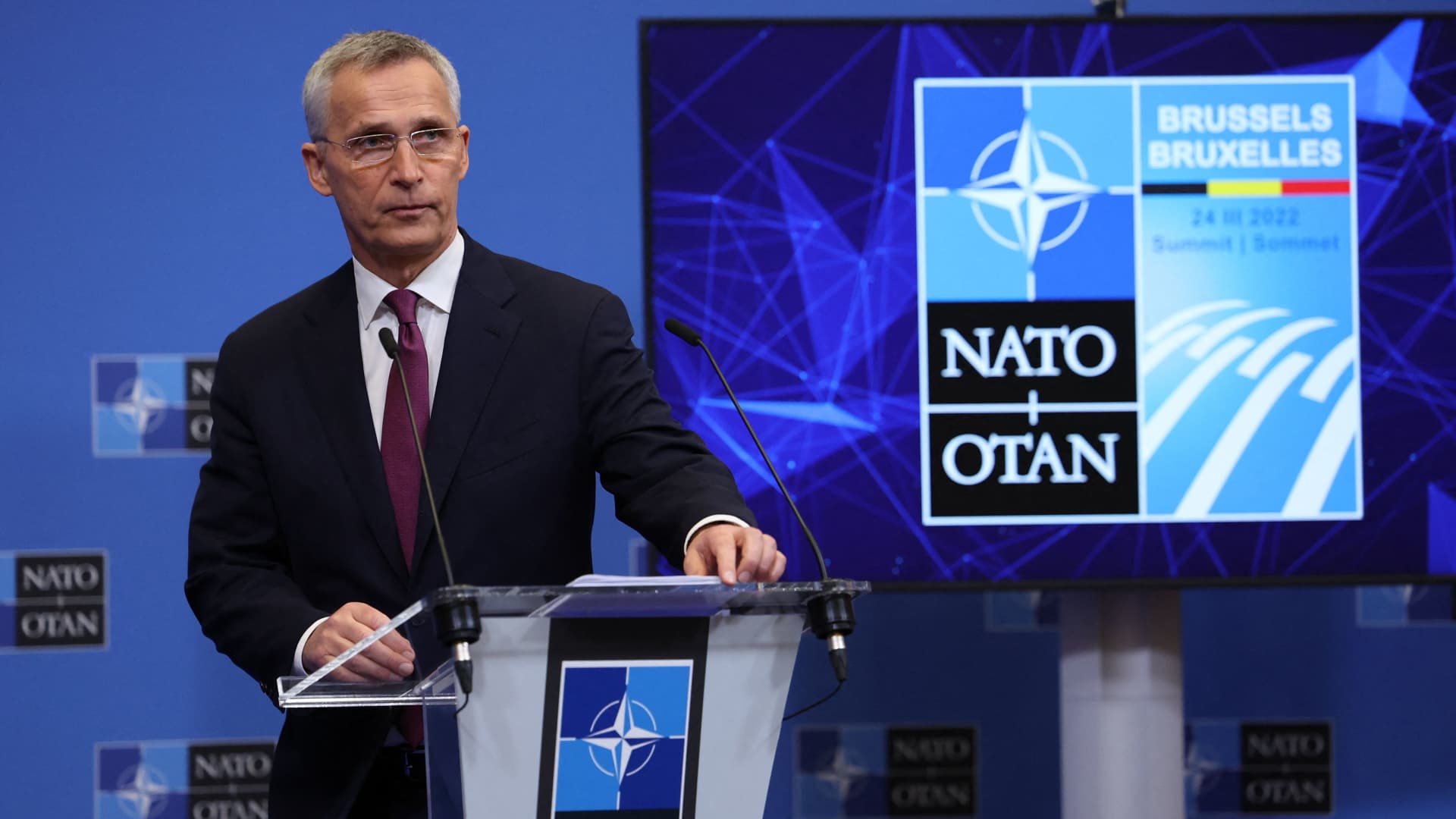NATO leaders set to OK ‘major increases’ of troops in response to Putin’s war on Ukraine

NATO Secretary-General Jens Stoltenberg said Wednesday the alliance is likely to bolster troops along its eastern flank, deploying four new battle groups in Bulgaria, Hungary, Romania, Slovakia.
“I expect leaders will agree to strengthen NATO’s posture in all domains, with major increases in the eastern part of the alliance on land, in the air and at sea,” Stoltenberg said during a press conference ahead of the NATO leaders summit in Brussels.
Since the Kremlin’s Feb. 24 invasion of Ukraine, NATO has readied 140,000 troops in the region and mobilized a colossal war chest of advanced military equipment. Of the approximately 140,000 troops, the United States has provided the lion’s share with 100,000 soldiers.
The U.S. service members and NATO troops are currently deployed in neighboring NATO-member countries and are not directly fighting with Russian forces inside Ukraine.
U.S. Ambassador to NATO Julianne Smith said Wednesday that a permanent stationing of U.S. and NATO troops is currently on the table.
“NATO is in the process now of stepping back and thinking more about a medium and longer-term force presence in NATO territory on that eastern flank,” Smith said, adding that the new deployments to the region send “a pretty clear message to Moscow.”
“Permanent stationing could be one solution, or persistent rotations as another option, that could be on the table. So at this point, what we need to do is have our military commanders give us the best advice that they can come to us with specific proposals and then as an alliance, look at what the security environment requires,” Smith said.
The alliance, which has more than 140 warships at the ready as well as 130 aircraft on heightened alert, has previously warned Putin that an attack on a NATO member state will be viewed as an attack on all, triggering the group’s cornerstone Article 5 that calls for a military response from member nations.
Ukraine, which has sought NATO membership since 2002, is bordered by four NATO allies; Poland, Slovakia, Hungary and Romania. Poland currently hosts the majority of the troops from the 30-member alliance and has thus far taken the lion’s share of refugees fleeing Putin’s war.
President Joe Biden, who is expected to travel to Poland after attending the NATO leader’s summit on Thursday, said Wednesday that Putin’s potential use of chemical weapons to attack Ukraine is “a real threat.”
Earlier this month, Biden warned Putin could resort to using “false flags” to justify a chemical or biological weapons attack on Ukraine.
“Now he’s talking about new false flags he’s setting up … asserting that we in America have biological as well as chemical weapons in Europe, [it’s] simply not true I guarantee you,” Biden said at the business event in Washington on March 21.
“They are also suggesting that Ukraine has biological and chemical weapons in Ukraine. That’s a clear sign he’s considering using both of those,” Biden said, without presenting evidence.
Stoltenberg told reporters at the alliance headquarters in Brussels that using chemical weapons would change the nature of the ongoing conflict in Ukraine.
“It will be a blatant violation of international law and with far-reaching consequences,” Stoltenberg said, adding that the use of such weapons could impact nearby NATO member countries.
Stoltenberg also said that the NATO alliance will be soon providing Ukraine with equipment to protect against chemical, biological, radiological as well as nuclear weapons. He declined to elaborate on what kind of specific support the alliance would provide out of operational security.
Russia has previously used chemical weapons on the battlefield, including in Syria, against Kremlin critic Alexei Navalny and against former Russian spy Sergei Skripal and his daughter Yulia in London.




